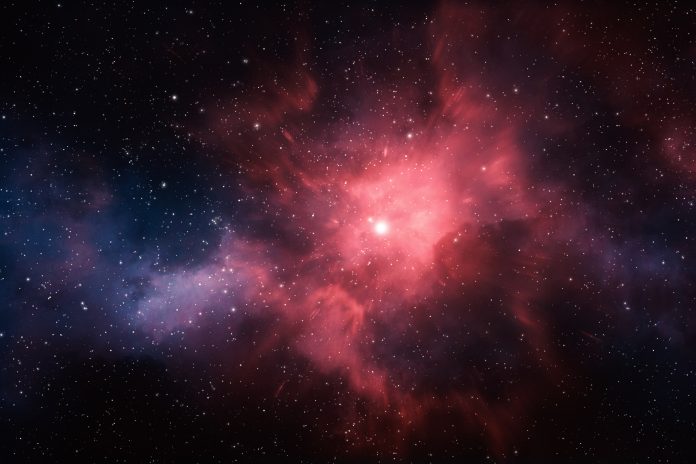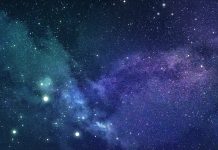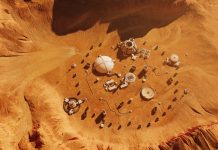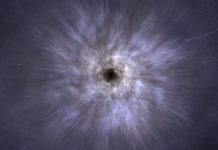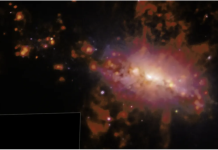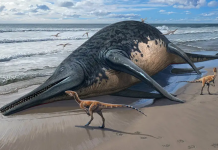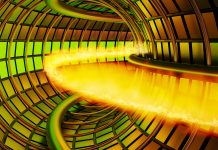Revd Professor David Wilkinson, Astrophysicist at Durham University, highlights space exploration and the nature of the divine
I gave a sermon during BBC Radio 4’s Sunday Worship service during World Space Week a few months ago. In that sermon, I reflected on my participation in a very unusual panel discussion at the National Cathedral in Washington, DC, a few years prior.
On the panel were some interesting folk: Amazon boss and occasional astronaut Jeff Bezos; Avril Haynes, the Director of American National Intelligence; Senator Bill Nelson, the Head of NASA; Harvard Astrophysicist, Professor Avi Loeb; and me.
We were there to discuss ‘Our Future in Space’. The discussion ranged from the ethics of space tourism to mining other planets and moons in the solar system. Although my background is in theoretical astrophysics, I have been invited because I am a theologian these days. I was initially surprised to be asked, but our future in space raises some big questions that have always been part of human curiosity and wonder.
For me, science is a gift to be used to explore and work with the natural world. As the great astronomer Kepler said: “Science is thinking God’s thoughts after him”. (1) In my own work on star formation and the evolution of galaxies, the beauty and intelligibility of the laws of physics filled me with awe and flowed through into worship of the creator God.
Space exploration: Scientific curiosity and understanding
I spoke about this during World Space Week because I wanted to affirm my belief that God gives scientific curiosity, and as each generation discovers new possibilities in space, we need to use that knowledge and technology wisely for the good of all.
The idea that all individuals should benefit from scientific understanding underpins the work of the Equipping Christian Leaders in an Age of Science (ECLAS) project (2), based at St John’s College, Durham University and sponsored by Templeton Religion Trust, and of which I am Project Director. ECLAS aims to arm Christian church leaders with the knowledge and skills to engage with science confidently.
We were privileged recently to have Professor Chris Done, a fellow astrophysicist at Durham, join the ECLAS team. Chris is at the top of her field and was one of only two European scientists the European Space Agency selected to participate in the X-Ray Imaging mission with the Japanese Space Agency and NASA.
Reconciling science and faith
Like me, she is also a Christian and is often asked how she reconciles her science and faith. Again, like me, Chris believes that we will never successfully disseminate knowledge about the Universe if we persist with the ‘conflict narrative’, which can make huge swathes of society feel intimidated or threatened by space science/space exploration, and prevent greater diversity within the astrophysicist community.
Talking about her perspective on science and faith, Chris says:
“There is nothing in the whole of creation that could possibly threaten the existence of God who made it, so what is the problem? Sometimes, science is presented in a very anti-faith way because scientists are people, and if they happen to be atheists, then they’re going to say, “Evolution happened; there is no God. The Big Bang happened; hence, there is no God.”
“I have absolutely no trouble with the first parts – yes, the Big Bang happened. Yes, Evolution happened. That doesn’t mean there isn’t a God. There is a God who made and sustains it and is dynamically involved in his creation.
The existence of black holes
On the existence of black holes – Chris’ specialism – and what that tells us about the nature of the divine, she adds: “Without black holes, and without dramatic stellar collapse that leads to black holes, you wouldn’t have the spread of the chemical elements that you need to make life possible. The way the universe works, the structure of the universe on the very largest scales depends on what happens in physics on the very smallest scales.”
When Buzz Aldrin touched down on the Moon in 1969, he also held exploration together with worship. He asked for a moment of radio silence, then opened little plastic packages which contained bread and wine. Later, he described the moment: “I read the words which I had chosen to indicate our trust that as Man probes into space, we are in fact acting in Christ.”
Space exploration and the divine
Both human beings and the stars matter to God, and because of that, the exploration and use of space is a God-given vocation to be celebrated by the Church. As such, rather than being seen as a ‘difficult topic’ for people of faith, I see it as our duty to disseminate and make knowledge about the Universe accessible to all humanity.
References
- https://www.newworldencyclopedia.org/entry/Johannes_Kepler
- https://www.faraday.cam.ac.uk/churches/church-resources/posts/resource-preview-equipping-christian-leaders-in-an-age-of-science-eclas/
Contributor Details
Editor's Recommended Articles
-
Must Read >> Space breakthrough: Mars immigration advancements


